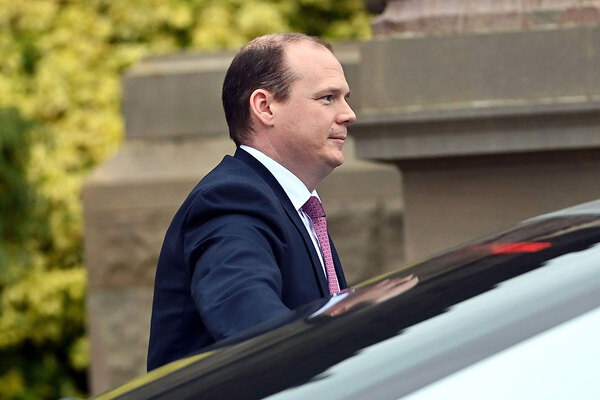The single-minded conversation
Caroline Thorpe finds housing minister Margaret Beckett preoccupied by supply
Margaret Beckett has a one-track mind. Whatever the question, however it is phrased, whenever it is sprung, the housing minister’s answer is the same: ‘At the forefront of my mind is supply.’
In truth, there are variations on the theme. ‘As I say, for me the absolute top priority is what we can do to change the position on supply’, or ‘at this present time it’s probably better for [housing] associations to be looking at new build’. She might allow herself the occasional digression - such as last week when she granted Inside Housing’s Empty Promise campaign demand for more empty homes guidance for councils. But on the whole you can bet that whatever you’re interested in is not considered as important as building more homes.
Not that this is a bad, or particularly unexpected, thing for the housing minister to be thinking about, especially given last week’s warning from the National Housing Federation that house building looks set to slump to an 88-year low of 70,000 homes in England in 2009/10.
Since well before Mrs Beckett took up the role last October, the question of how to resuscitate the gasping house building industry has weighed on many minds. The appointment of former foreign secretary and deft political operator Mrs Beckett has put some of them more at ease.
The difficulty for those keen to hear her thoughts on other aspects of housing, is what she’s not thinking about as a result of the supply fixation.
Take tenure, an issue in which Mrs Beckett’s predecessor Caroline Flint took a healthy interest, sparking the debate on linking tenancies to jobs.
The issue of tenure is not our problem. Not having any houses is our problem,’ says Mrs Beckett. ‘I have no present plans to make tenure changes.’
And what about the housing reform green paper, widely expected this spring? Forget it. ‘The timetable for me is driven by having the content that I want to put in the green paper, not by some artificial deadline,’ says the minister, bringing frequent media comparisons between her and a stern schoolmistress to life.
Enter the brute that is the review of the housing revenue account. ‘It slightly surprises me that people thought of doing the reform green paper beforehand,’ scolds Mrs Beckett, acknowledging the scale of the task faced by those figuring out how to fund council housing in a fairer and simpler way. She argues that until the HRA’s fate is decided, there’s little point in tackling other reforms.
Anything but?
The sector looks set to be in limbo for a while yet. Mrs Beckett ‘hopes’ the HRA review will report by early summer, ‘but it’s not yet clear to me yet how much we’re on track for that’.

But it’s hard to find crumbs of comfort in the minister’s words for councils seeking certainty one way or the other. ‘I’m very mindful of the fact that everybody says “we have to change the HRA because anything will be better”. That’s what they said about the poll tax,’ she says ominously.
‘One of the pieces of advice that I recall being given when we were in opposition was that one of the biggest mistakes the Thatcher government ever made over the issue of the poll tax was to say that any option will be considered except for the rates [the forerunner to the poll tax], because anything was bound to be better than the rates. I don’t intend to drive myself into that corner with the HRA.’
The argument crescendos to a jocular, ‘if the alternative is more unattractive that the HRA, we’ll stick with the HRA’, before dropping to a sotto voice and serious: ‘It’s got to look like a better option.’
It’s not the first time Mrs Beckett has kept council housing departments waiting. Earlier this month she made an eleventh hour U-turn on a decision not to help councils avoid imposing inflation-busting rent hikes after months of town hall lobbying. The decision to spend an estimated £175 million of taxpayers’ money to reduce rent rises due in April came so late in the day that councils reckon it will cost between £10,000 and £50,000 each to implement them (Inside Housing, 13 March).
Mrs Beckett is unrepentant: nobody’s forcing councils to take the cash. ‘It’s for them to make the choice… I’m not in the position of just giving councils the money and then wondering if they’re going to use it for their rents. They use it to cut their rents or they don’t.’
It’s less clear cut for those housing associations calling for a rental floor in the hope it might mitigate the effect of looming deflation on their inflation-linked rents. ‘I’ll look at the concerns they’re expressing and we’ll see what conclusions we can reach,’ she says, adding that the ‘evidence is a bit mixed’ as to the best way forward.
But it looks as though associations, like councils before them, could be waiting down to the wire. ‘I understand about people wanting to do their own financial planning, but [given the economic climate] the slightly later we could do this the better’.
Which brings us back to supply. Surely there’s something to say about the government’s push on council house building. ‘We’re out to consultation,’ comes the answer. ‘The only thing that I would say is that we’re very pleased to recognise the contribution local authorities can make.’
Foiled again.
Video:
Margaret Beckett interview








